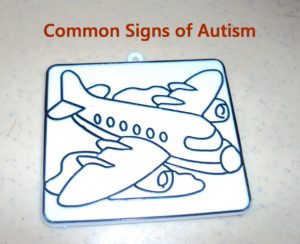 Autism Spectrum Disorder (ASD) is a developmental disability that greatly affect communication and social skills of an individual. It also affects how they perceive the world. Individual with autism see, hear, and feel the world differently to other people. Autism has no cure but with the right support, they can live a more fulfilling life. There are available strategies and approaches to improve the symptoms of autism and live independently. Signs of autism seen in the first three (3) years old of the child’s life. Remember there is no same children with the same signs of autism. Every child is unique which vary from mild to severe autism.
Autism Spectrum Disorder (ASD) is a developmental disability that greatly affect communication and social skills of an individual. It also affects how they perceive the world. Individual with autism see, hear, and feel the world differently to other people. Autism has no cure but with the right support, they can live a more fulfilling life. There are available strategies and approaches to improve the symptoms of autism and live independently. Signs of autism seen in the first three (3) years old of the child’s life. Remember there is no same children with the same signs of autism. Every child is unique which vary from mild to severe autism.
The following are the seven (7) common signs of autism:
- Limited or no eye contact
Baby does not have eye contact may indicate autism. Lack of eye contact indicate delay in communication and comprehension. - Not responding to his/her name
Other sign that a child has autism is not be able to respond to his/her name and would not look back when you call him/her out. Normal kids are able to respond to their names and might even start imitating their parents when they talk to them. - Delayed in development milestone
One of the indicator that a child has autism is the delay in milestones. Six months old baby should be able to smile, grasp a finger and respond to voice. Children with autism has difficulty to respond, babble and smile back to their mother and strangers. Sometimes, they also delayed in physical ability such as crawling, standing and walking. - Repetitive behavior and routines
For children who have autism, the world for them seems very unpredictable and confusing place so they prefer to have a daily routine so that they may know what is going to happen every day. They may not be comfortable with the idea of change so they become upset when there is a change in schedule and activities. They want to eat breakfast the same food at the same time and always travel same way to and from school or work. While repetitive behaviors means by their repeated occurrence, inappropriateness and behavioral rigidity. These repetitive behaviors includes hand or arm flapping, spinning or rocking and swaying. - Social Delayed or Interaction
Child with autism have difficulty reading other people’s feelings and intentions and had a hard time of expressing his/her own emotions. - High focused interest
Most autistic kid may have intense and highly focused interest such high interest in numbers, alphabets, shapes, colors and they say it over and over again. - Sensory sensitivity
Common issue with a child with autism is that they experience over or under sensitivity to sound, touch, tastes, smells, light, colors, temperatures or pain. Sometimes they found out that a particular sound is unbearably loud or distracting but for normal child ignore it. A child with autism may also very fascinated by lights or spinning objects.
